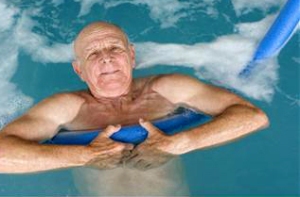 With just a few weeks left to the 2013 holiday season, there may be a few more special occasions for families who have a loved one living with dementia to gather together. We’ve discovered a list of tips from the Alzheimer’s Association to make these occasions successful and happy, but since they are as relevant to any family celebration at any point in the year as they are to traditional year-end events, we felt it would be worthwhile to share with readers.
With just a few weeks left to the 2013 holiday season, there may be a few more special occasions for families who have a loved one living with dementia to gather together. We’ve discovered a list of tips from the Alzheimer’s Association to make these occasions successful and happy, but since they are as relevant to any family celebration at any point in the year as they are to traditional year-end events, we felt it would be worthwhile to share with readers.
- Adjust your expectations of yourself, the caregiver. Only agree to take on what you can reasonably manage, and ask for help. Holidays, birthdays, and anniversaries often come with traditions and expectations from family members, but try to ask for people to be flexible. Perhaps you can ask someone else to host the holiday gathering this year.
- Let family and friends know what to expect. If they haven’t seen the person with dementia in a few months or a year, make sure they know.
- If a family gathering is large, assign a friend or relative (or two) to be a “buddy” to the person with dementia. The buddies can take turns guiding the person with dementia through what is expected at the gathering and making sure the person with dementia’s needs are being met.
- Involve the person with the diagnosis in tasks that they can succeed in. Maybe he or she can no longer prepare the entire meal, but perhaps the person can rinse the vegetables, set the table or clean silverware and still feel included in the preparation.
- Try to schedule only one activity or outing a day. Allow the person to rest either before or after the event. If you have an especially busy day, plan for the next day to be one of rest and relaxation for both the person with dementia and you.
- Take time for yourself. If you have a holiday tradition that is important to you, such as attending a musical performance with your grandchildren, arrange for home care so you can continue to enjoy the things you love.
Visit the Alzheimer Association website for a fuller list of holiday season tips as well as tips for winter and spring enjoyment.











